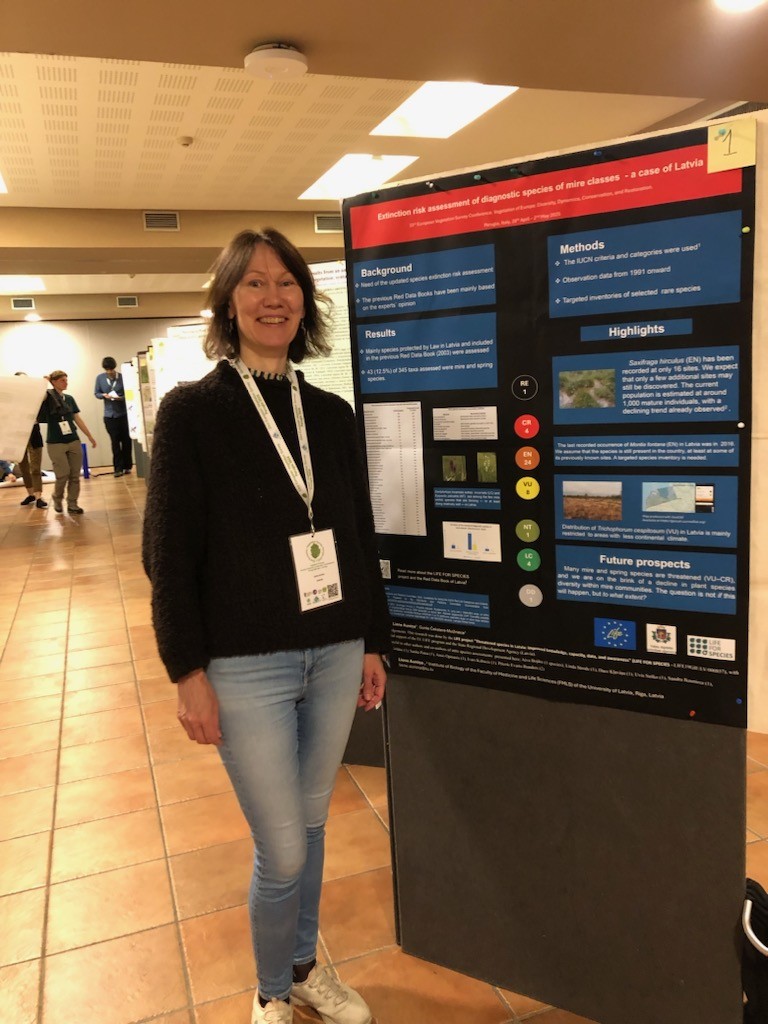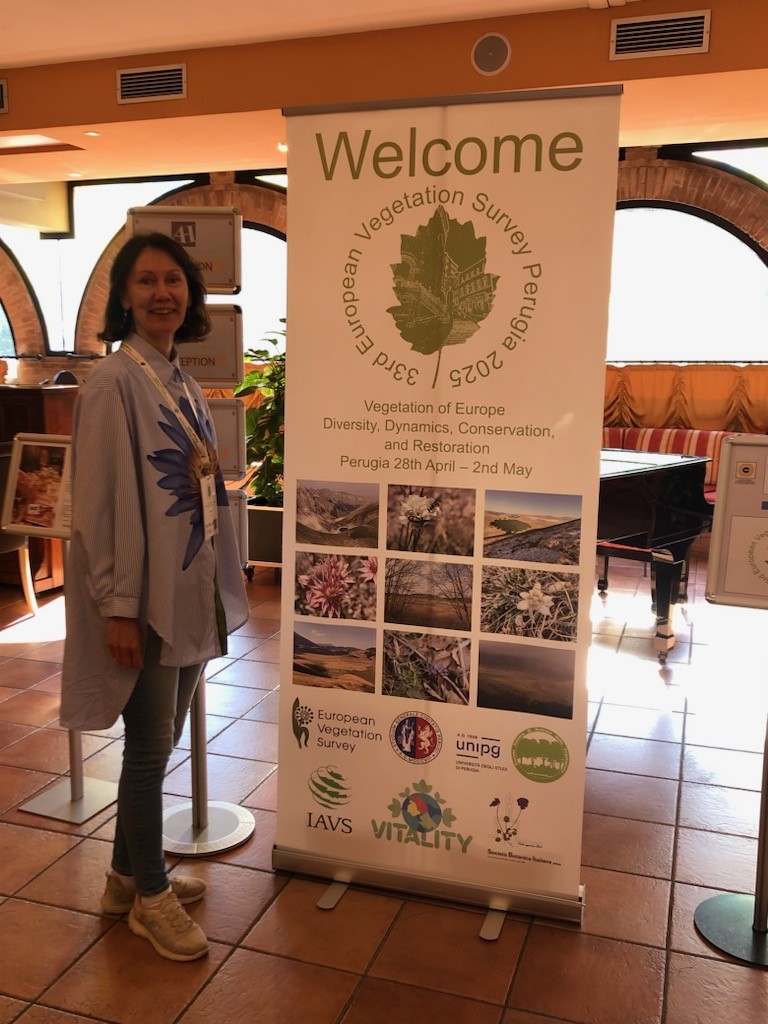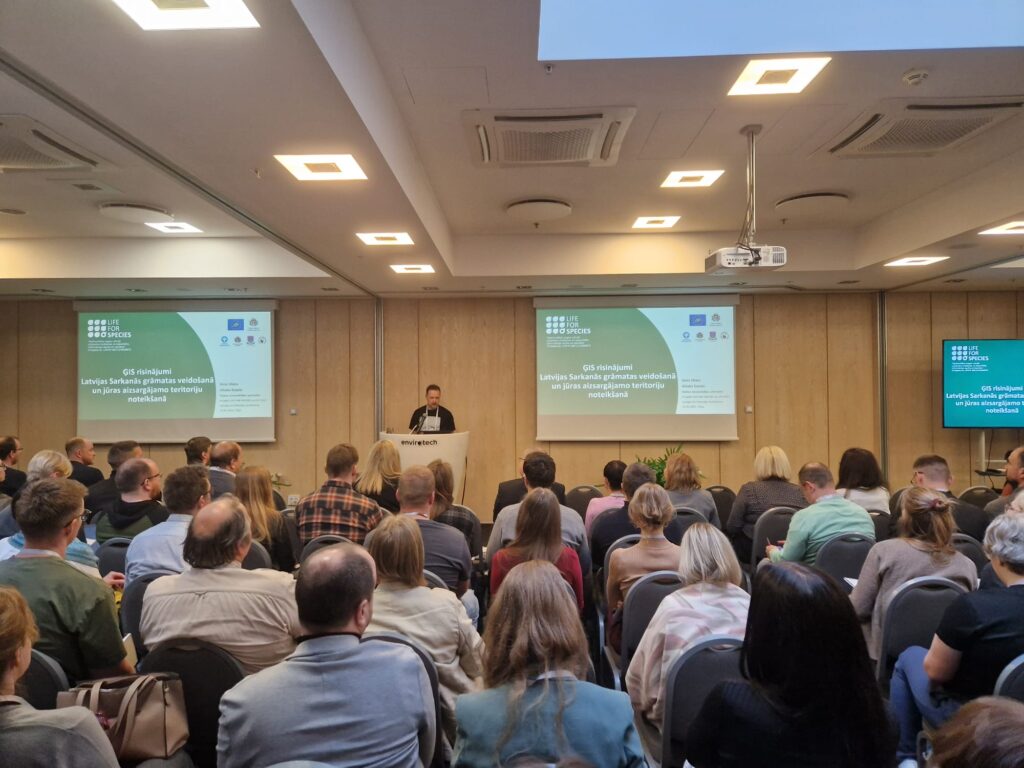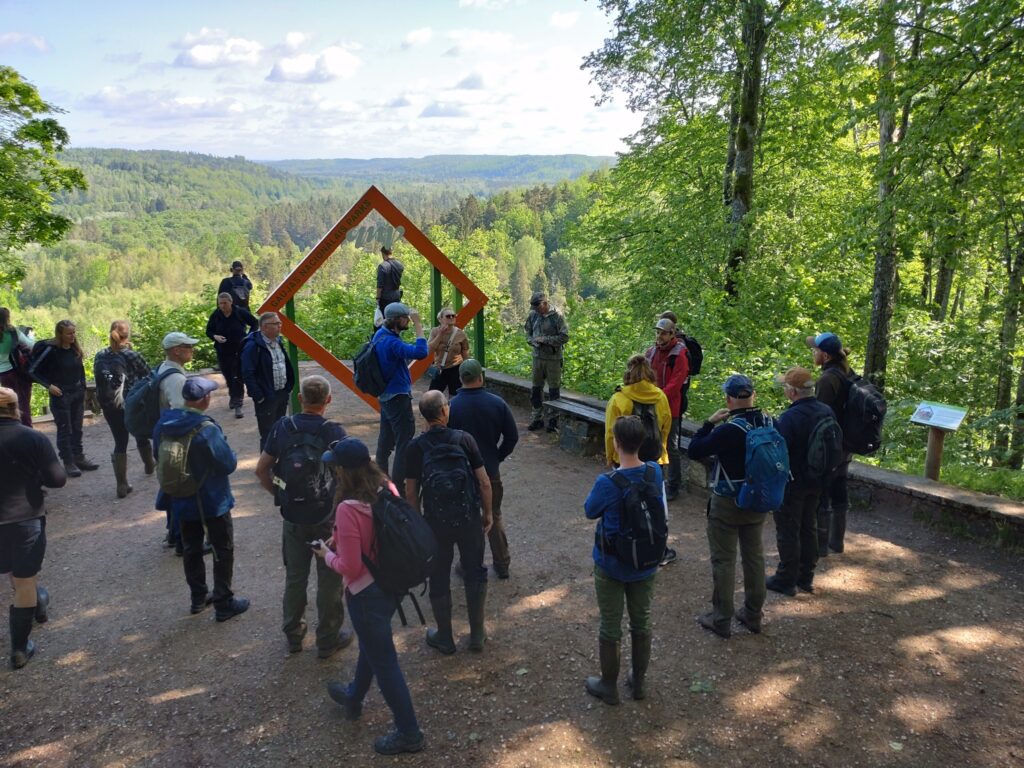LIFE FOR SPECIES Project represented at various international events
As the LIFE FOR SPECIES project nears its conclusion, the team is increasingly engaged in sharing experiences and results with others—helping to ensure the long-term impact and transferability of the project’s outcomes.
From April 28 to May 2, 2025, Liene Auniņa, head of the vascular plant species group from the LIFE FOR SPECIES team at the University of Latvia’s Institute of Biology, participated in the international conference “33rd European Vegetation Survey – Vegetation of Europe: Diversity, Dynamics, Conservation, and Restoration” in Perugia, Italy. She presented a poster titled “Extinction risk assessment of diagnostic species of mire classes – a case of Latvia,” showcasing the IUCN-based assessment results for 41 mire and spring species in Latvia. These included both specially protected species and those listed in the 2003 edition of the Latvian Red Data Book.


On May 8, project coordinator Jēkabs Dzenis presented the project’s activities to partners of the LIFE urbanCircles project from Latvia, Estonia, and Denmark. The presentation focused particularly on the conservation of endangered species in urban environments.
On May 15, the project’s cartographer Jānis Ukass gave a presentation at the Latvian Esri Software Users Conference, discussing the challenges and solutions in spatial data processing for the development of the Latvian Red Data Book.

On May 21, the LIFE FOR SPECIES team participated in a working meeting with Latvian and Lithuanian partners of the LIFE OsmoBaltic project. Jēkabs Dzenis introduced the project’s key activities, especially the work on updating the protected species list. The meeting also included in-depth discussions on the technical solutions developed for entering, processing, and visualizing species spatial data within the Ozols Nature Data Management System.

On June 2–3, the project team helped host a visit from Danish nature conservation experts to Latvia. Project expert Dāvis Ozoliņš presented the project's extinction risk assessments, with a particular focus on freshwater-associated invertebrates. Meanwhile, Jēkabs Dzenis led an educational hike through Gauja National Park, showcasing its natural values and the broader species protection challenges in Latvia.
Special thanks to Baltic Environmental Forum, LIFE GoodWater IP, Latvian LIFE Help Desk, and the LIFE IP LatViaNature project team for their collaboration in organizing this successful visit!

